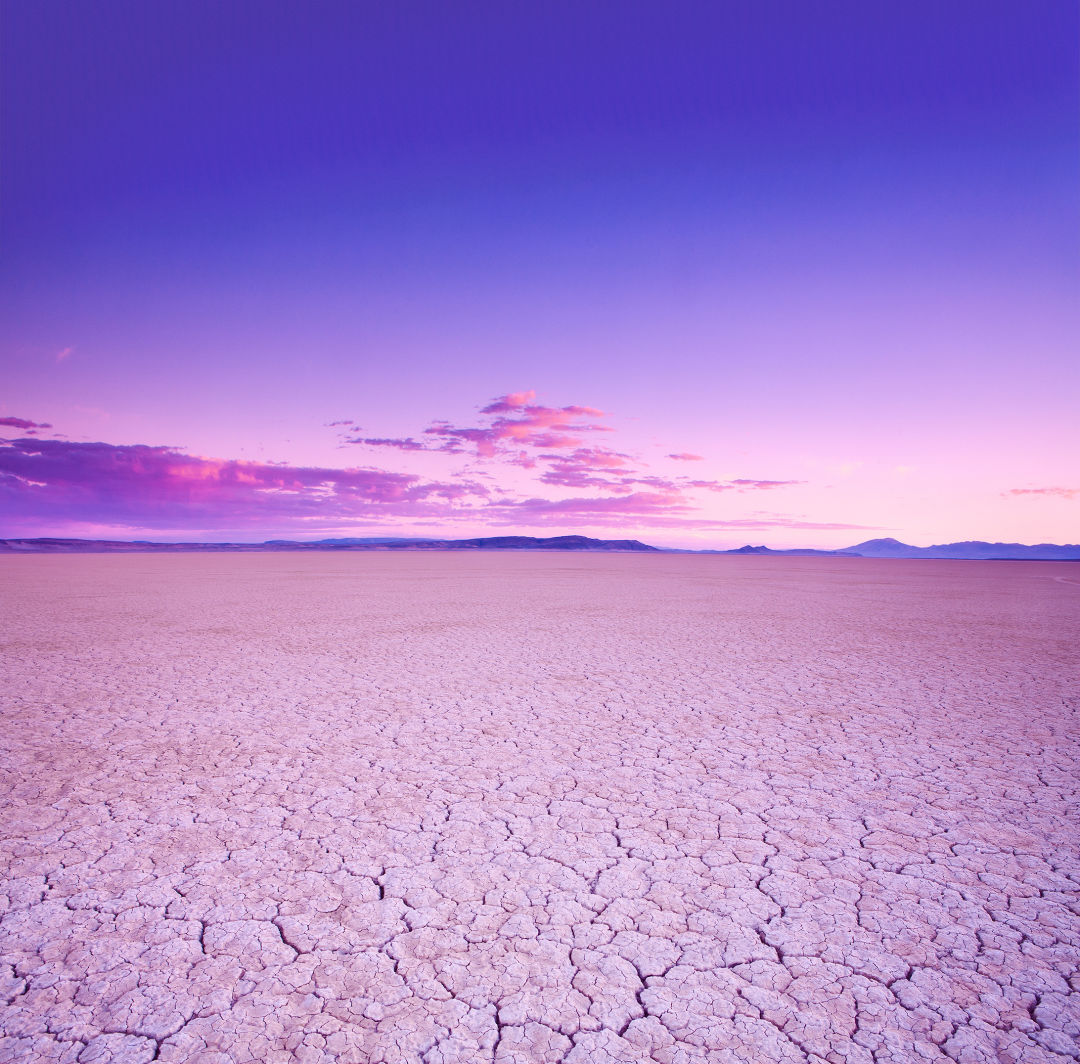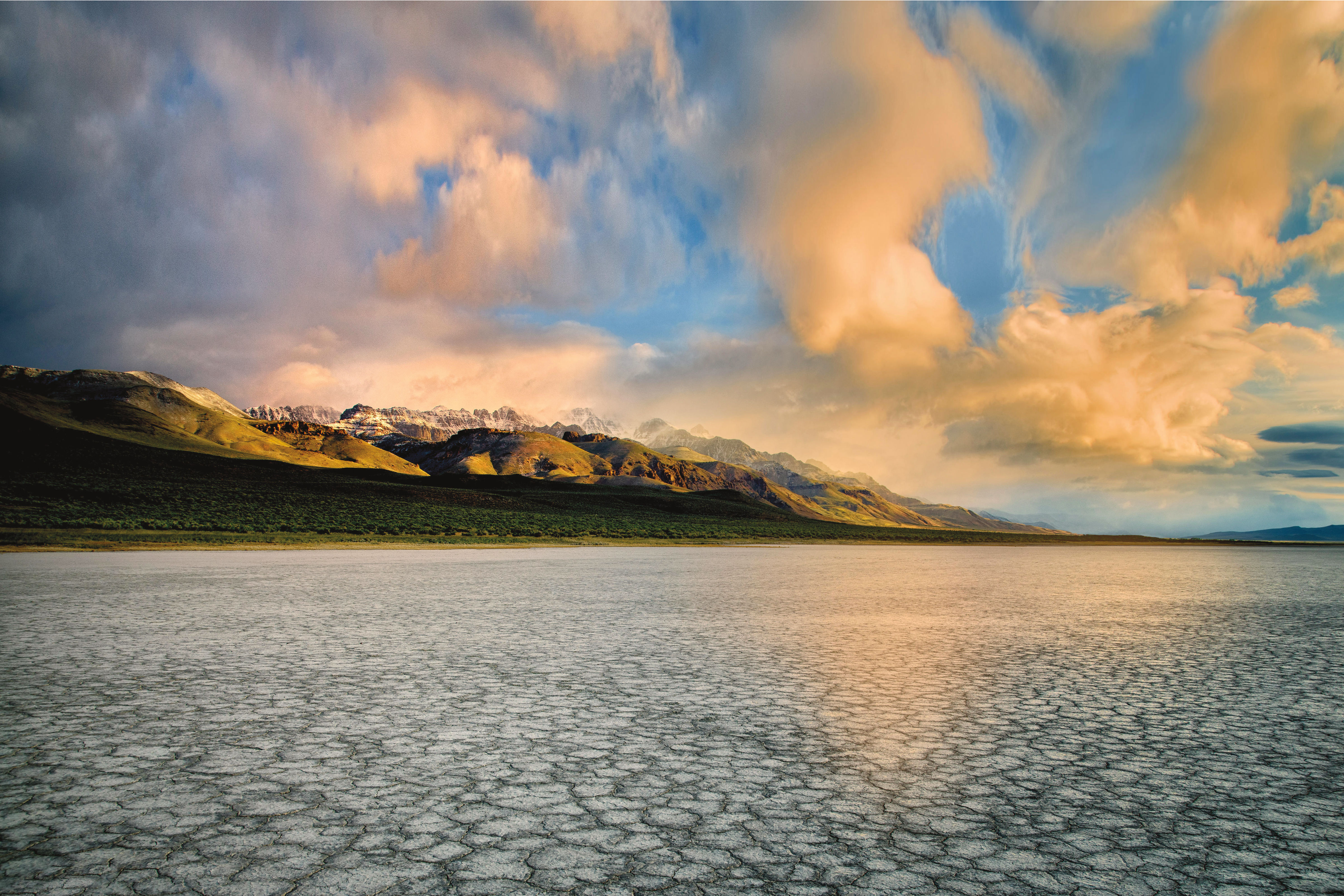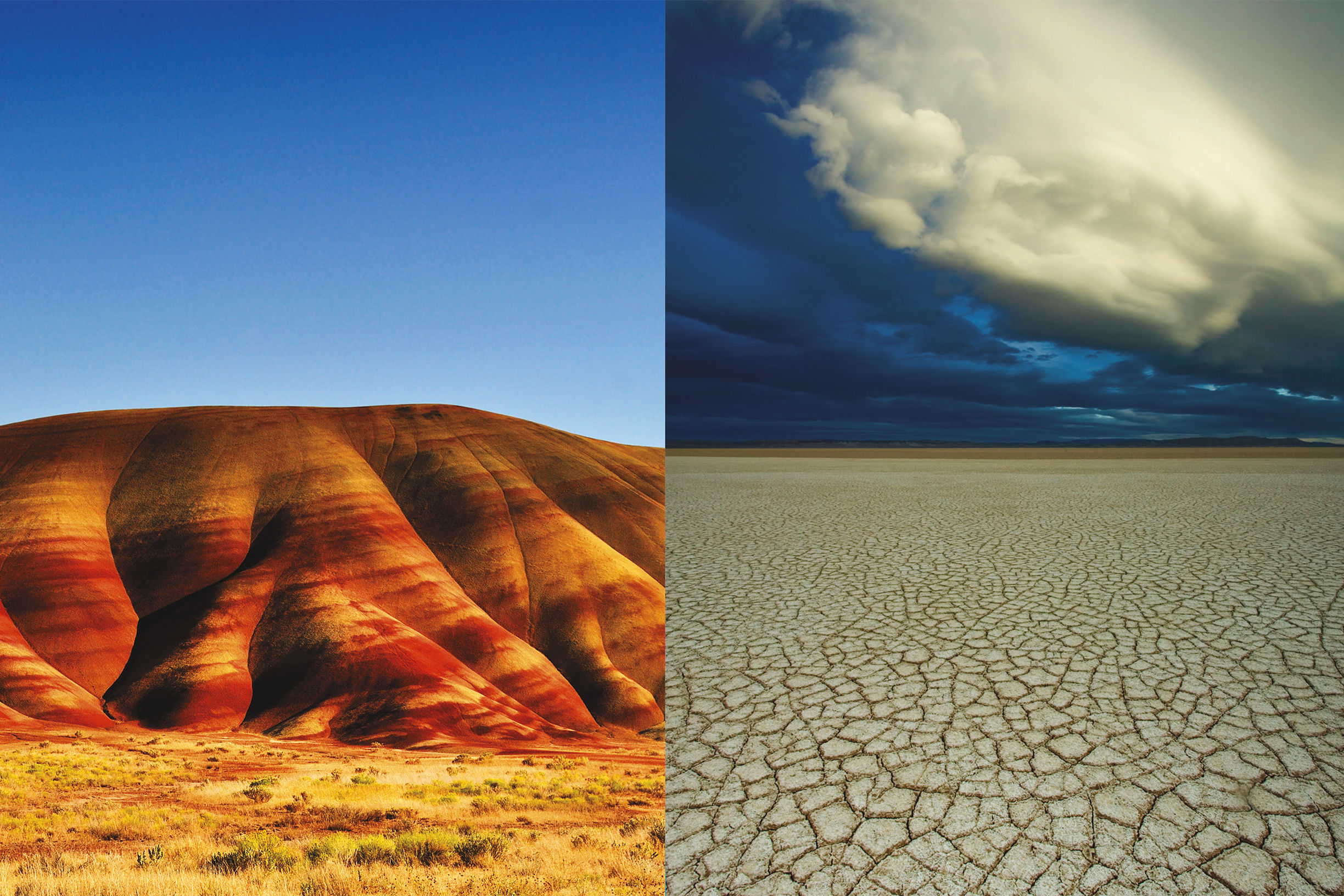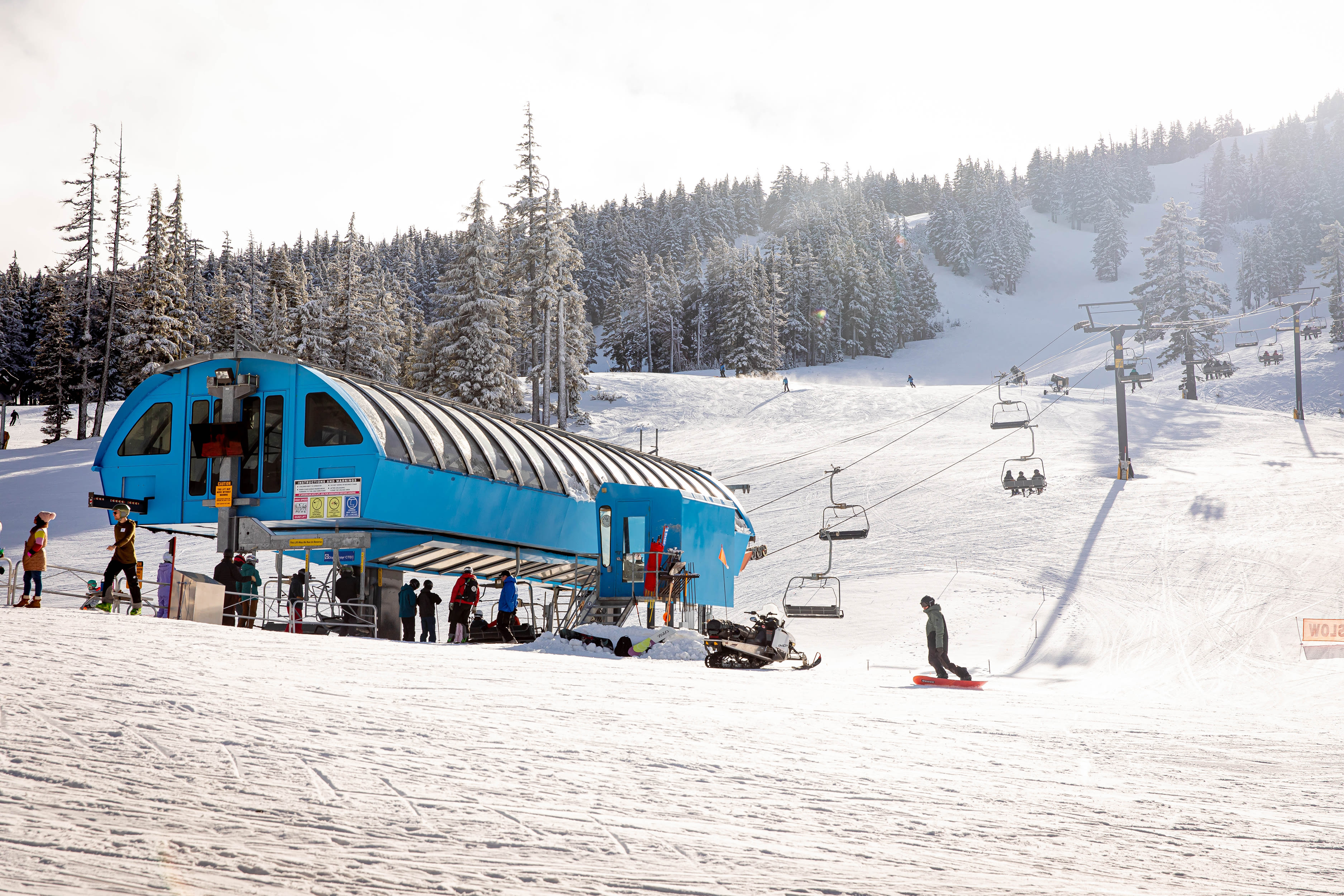5 Crucial Tips for Camping in the Alvord Desert

The dry, cracked ground of Oregon's playa is your playground—as long as you're prepared to rough it and leave no trace.
Image: vewfinder/shutterstock.com
A trip to the Alvord Desert isn’t taken on a whim. Most travelers who make the eight-hour drive from Portland to Oregon’s southeastern corner plan ahead extensively to camp out on the beautiful-yet-alien 84-square-mile dried lakebed. We gathered five critical pieces of playa-going advice.
Approach from the south. Put “Alvord Desert Hot Springs and Campground” in your GPS, and be sure you opt for a route that takes you on Highway 205 through Frenchglen and Fields to get there, curling around the south side of Steens Mountain to approach the desert. Voices of experience here: yes, you can approach from the north via Highway 78 and the Fields-Denio Road, which Google Maps will tell you is the fastest route, but the last 30 or so miles are unpaved and can be terrible unless your vehicle is off-road-equipped.
Pay the $10 fee at Alvord Hot Springs. A few access roads exist through the sagebrush and onto the playa, but the easiest to find and navigate is at the Alvord Hot Springs Bath House & Campground, a small, family-owned operation that offers secluded soaking as well as some primitive campsites and lodging inside of old renovated military bunkers. Check in at the campground and pay the $10 to get an access code to its gate accessing the road down to the playa—a very reasonable price to avoid accidental trespassing or getting stuck on a strange road with no cell service. Once on the playa, you can pick where to camp.
Go in autumn or spring. The summer heat and lack of shade make camping uncomfortable and carrying enough drinking water a challenge. The Alvord is one of the driest places in Oregon, getting only about five to seven inches of rain each year, most of which comes during the winter (when it’s also quite frigid). So try to time your trip to avoid those two extremes, and check the forecast, as heavy rain at any time can cause cars to get stuck in the mud—as 70,000 attendees of Burning Man 2023 learned when they had to shelter in place following heavy rain on a similar surface. Know that wind is always a factor, though less so the closer you camp to the edges of the dried lakebed; expect items to blow away if you don’t stake them down. And the weather can be intense swinging into freezing temperatures at night and melting heat during the day. Come prepared, or not at all.
BYO food, water, toys—and toilet! The nearest town is Fields, which offers just a scant gas station market, plus tasty milkshakes and burgers. Gas up in case you want to drive around to explore the desert, though mind private-property signs. The wide-open expanse means you can bring bikes, motorcycles, or ATVs to cruise around, and things like lawn games and glow sticks. For those not in an RV and shy about pooping on a luggable loo in the wide open, bring a pop-up bathroom tent or else you’ll be hoofing it to the hot springs or the Frog Springs access road (both on the west side of the playa) just to use their vaulted toilets. Pack out what you pack in, including your excrement.
Get weird. Think of it as your own private Burning Man, but without all the tech bros and $575 tickets. Yes, the nightly shooting stars are mind-expanding on their own, but with other campers scattered across the desert, no one can hear the thumping bass of your giant speakers. You can spread out, circle your group’s tents into a little village, and go wild. It’s a great place to become one with the wilderness with that new batch of albino penis envy (a strain of psychedelic mushroom). Just be aware that the coyote population will want to meet your dog, who should not be left unattended.




